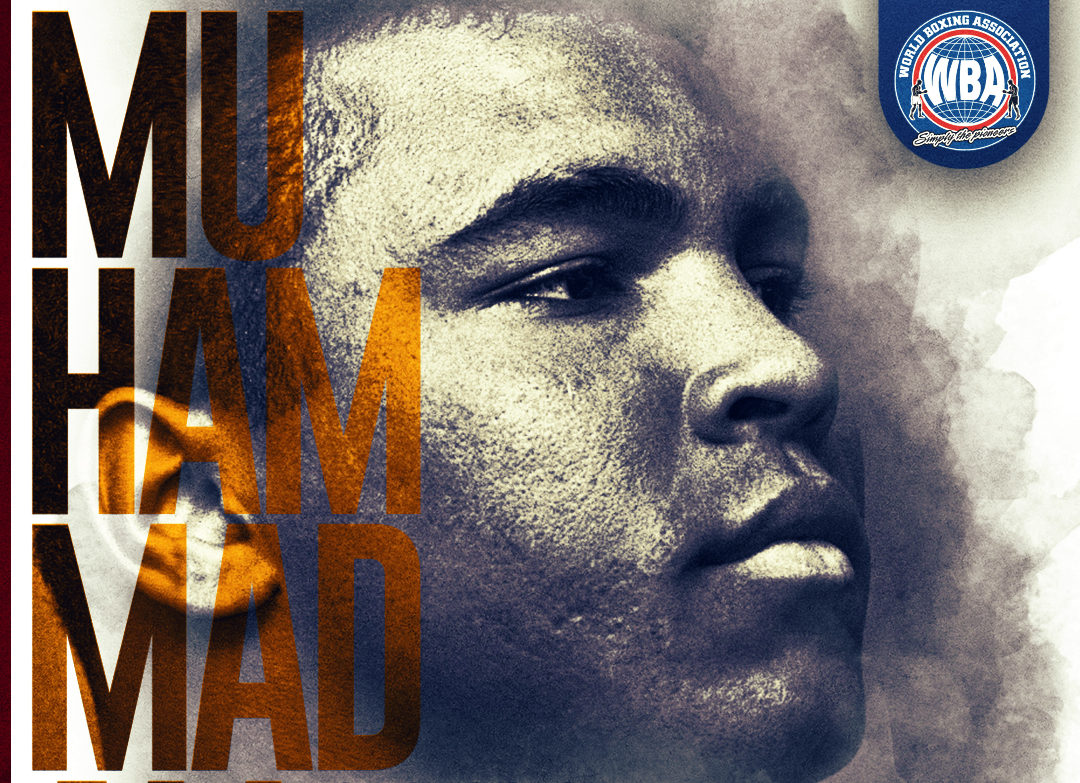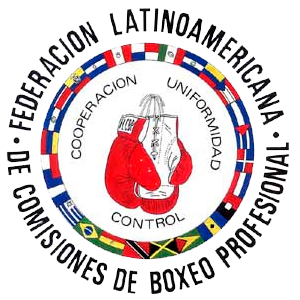
Two years ago, exactly on June 3, 2016, the world of sports received the bad news that shook it like a seism and moved it deeply: One of its greatest icons and surely the boxer with the most charisma in the annals of the discipline of the fists, Muhammad Ali, baptized as Cassius Marcellus Clay Jr. “a slave name”:, as he used to say, had died in a hospital in Scottsdale, Arizona, USA. Finally beaten after 32 years of being diagnosed with Parkinson’s disease, which he battled with resolve, as he did on the ring. He fell victim of a septic shock brought about by his respiratory problems of the prior day.
“Bigmouth” Ali, formerly the loud Clay, “The Greatest”, as he called himself, was born in Louisville, capital of the State of Kentucky, USA, 74 years and a few months before that June 3, that is, a little shy of a third of a century of a fully lived existence, filled with singular moments both in the sports he chose to earn him “the daily bread” Bible dixit (he won over 30 million dollars), as well as in his transit as a citizen, a field in which he stood out for his tireless fight for the rights of his African-American countrymen as well as the rest of the planet. Also for those who professed their belief in Islam, a religion he adopted almost immediately after his victory over Sonny Liston, when he won his first heavyweight title, on February 6, 1964 at the Miami Beach Convention Hall.
Well fitted by nature with astonishing fast legs and fists for the mastodon division, as well as a superb physical conformation distributed within 191 centimeters of height, he was seen since his beginnings by the experts as a fighter beyond the usual, which in fact he was.
Before Ali, (who in our opinion shared by millions of people in the world) changed everything in what the world new of boxing until then, nobody would have dared predict in which round he would finish his enemy. No one spoke as much as he did, nonstop. Nobody would earn so much for his work against the ropes as he did, a legacy that later his colleagues would enjoy as they do nowadays, in which dollars flow as much as water in the rivers. Nobody before him, no heavyweight moved across the ring, between the ropes, with his arms to the sides of his body, dancing with joy and ease, looking at his rival in defiance, almost mockingly. No other fighter of the maximum division moved around the ring before him, with the speed, grace and enchantment to the public as he did. Said in fewer words: Ali divided the boxing eras in two or three rather, before, during and after him.

When he peeked in the boxing concert, sports idols, or rather said, athletes who wore gloves to beat his adversary, where a species in danger of extinction. Ali was to boxing what in comparison Babe Ruth was to baseball: The savior, the star, the magnet, the idol that was needed to wake the discipline from lethargy, where there were not too many followers, it had become boring, since there was rarely something new or different.
The fans (there were more who loved him than detractors) enjoyed until delirium the art of boxing provided by that athlete “that floated like a butterfly but stung like a bee”, a descriptive phrase of the way he moved in the ring that Ali took over, although its creation was attributed to his friend and corner assistant, the mythical trainer Angelo Dundee, it was actually Bundini Brown, as talkative if not more than Ali, and as tan skinned as him, who died a few years later, after having “invented” such happy an expression. It became very popular and was always repeated by the charismatic and controversial fighter. He passed in a dark room of a miserable hotel in New York in complete and absolute poverty. He was a great and witty creator of phrases for boxing without equals or successors in the history of the sport.
When Ali shun from activity for good, he carried in his saddlebag 56 battles with a balance of 37 knock-outs with an average of 66.07%, 25 world championship fights and only 3 frustrations in those battles (one against Frazier in March of ’71 at Madison Square Garden, another with Leon Spinks in February ’78 at the Las Vegas Hilton and Larry Holmes in February ’80 at Ceasar’s Palace in Las Vegas), most of them loaded with excitement and anticipation.
He left to remembrance the commentaries that even after the passing of time still surface in the gatherings of old fans. His epic confrontations against Sonny Liston, against whom he won his first title of the queen category, of which he was the first boxer to win three times in different phases. The three crashes against Joe “Smoking” Frazier; the three fights with a 2-1 balance against the ex-marine Ken Norton, the defeat suffered in 15 rounds that cost him his ABA belt, a local entity, in which he suffered a fractured jaw since round two, and finally against the “Roar of the Jungle” George Foreman in the opposite corner, a fight he attended as a sure victim, according to the experts. He starred in what is considered one of the biggest surprises in any division, when he won by knock-out at the 2’58” mark in the eighth round, in an event that took place in Kinshasa, Zaire (formerly Lepoldville, currently Democratic Republic of Congo in Africa).on Wednesday October 30th, 1974, an event that purportedly put in front of the TV screens a legion of Pay-per-view fans that surpassed easily the ones (about 530 million viewers) who watched the first moon landing by astronauts Neill Armstrong, Edwin (“Buzz”) Aldrin and Michael Collins on July 20, 1969, on the Apollo 11 mission.

“Roar of the Jungle”
In this commemorative note, of the earthly departure of the “Sportsperson of the 20th century” a distinction conferred by the specialized magazine The Ring and by the BBC Network, it is inevitable to mention his epic and famous confrontation with then theoretically invincible and demolishing George Foreman. For that we allow ourselves to bring up a story by the prestigious American writer, Norman Mailer in his novel The Fight, in which masterfully describes the secrets of the Ali-Foreman fight, organized by the flashy promoter of unruly hair, Don King, with the economic backing of Mobotu Seze Seko, (1930-1997) the dictator later overthrown, who saw in this fight the potential for projecting his image worldwide.
Mailer (1923-2007), who attended the fight as a special envoy of a publisher from his country, wrote in the fragment that we took from his novel, what happened in the eighth round for you to read:
“…A big projectile the size of a fist in a glove drove into the middle of Foreman’s mind, the best punch of the startled night, the blow Ali saved for a career. Still bowing from the waist in this uncomprehending position, eyes on Muhammad Ali all the way, he started to tumble and topple and fell even as he did not wish to go down……He went over like a sixty-year-old butler who has just heard tragic news, yes, fell over all of a long collapsing two seconds, down came the Champion in sections and Ali revolved with him in a close circle, hand primed to hit him one more time, and never the need, a wholly intimate escort to the floor” .

To the words of the great master of the so called New Journalism, we unite ours in reference to that unique and surely unrepeatable event in the realm of the sport of gloves, an occurrence considered as one of the most important sports event of the twentieth century. Such was the encounter that 44 years ago starred two of the greatest heavyweights in history. At the time, the then ex-champion Muhammad Ali and the aggressive and devastating monarch (said to have a killer instinct on the ring), George Foreman, owner of the WBA and WBC belts, two of the organizations that rule the discipline in the professional arena and with a record of 40-0, 37 KO’s with Frazier and Norton among his victims.
The brawl took place in the wee hours of the morning (4am, local time) of October 30, 1974 as we noted, at the 20 of May stadium of the African city above mentioned, with a capacity for 60 thousand people, surpassed by almost double its limit by fervent spectators, most of them rooting for a triumph for the challenger, Ali, whom they cheered all the time and with greater stridency during the 26 minutes and 58 seconds that the combat lasted to the chant of Ali, bumayé!, Ali, Bumayé! (Ali, Kill him!, Ali, kill him!).
The resounding, surprising and consecrating triumph gave back the throne to the 32 years old Kentucky fighter, which had been taken from him seven years earlier, not lost in the ring, but in a court that sentenced him to 5 years in prison, which he did not serve, but that took the belt away in April ’67 for his refusal to enroll in the army and fight in Vietnam, claiming in his defense to object that in his conscience t “I ain’t got no quarrel with the Vietcong. No Vietcong ever called me Nigger (Black)”.
Ali managed that fight against all odds, even contravening Dundee’s instructions, who recommended to keep away from Foreman’s destructive power, with 25 years of age and a steamroller machine that had crushed all his prior rivals mercilessly.
Ali ignored the advice of his trainer and what seemed sensible. He put in practice his own judgement and strategy: He let Foreman attack and hit while he protected his jaw and body, obstructing the enemy blows with arms and forearms in front. . The young champion hit and hit without hurting the challenger, who in addition amused himself by whispering to him things such as “Is that all you’ve got, little girl”, “Can’t you hit harder George?” among others, in order to intimidate and unsettle him. He carried out the strategy for the first seven rounds, frequently leaning against the ropes , stuck onto Foreman like a leach and all of a sudden pow, pow, pow!, three, four, five blunt blows and Foreman, as Mailer recounted, fell apart, he slowly tumbled to the side until he fell like a ton of bricks on the canvas. Zachary Clayton, the referee, just got close to the fallen fighter and counted the 10 seconds of the regulations, to amaze of the whole world and elevate Ali to the Olympus for eternity, the mythological home of the Gods.
Details of this unforgettable combat were made into a movie by Leon Gast in “When we were Kings” and by Michael Mann in “Ali”, two of many feature films and documentaries about the life of the boxing star.

From Olympic gold to the heavyweight crown
Fourteen years had gone by since the moment in which Cassius Clay, later Muhammad Ali, made his debut in professional boxing against Tunney Hunsaker, who left nothing to boxing, except his name as the first adversary of a youngster of 18 years that a few months before in Rome-60 had won the Olympic gold medal of the semi-heavyweights, and which according to biographers, he threw into the Ohio river in reaction to the humiliation he felt when he was denied entry into a “whites only” establishment.
A replica of the medal was given to Ali (he was the author of the story according to which he threw the prize into the river. Years later he said he had lost it), in a special ceremony during the Atlanta 96 Olympic Games.
His transit through amateur was of four years, in which he achieved 100 victories and only 5 defeats. Six championships in the Kentucky Golden Gloves Tournaments, his native State. He reached out to Boxing with the intention of confronting a young thief that had stolen his bicycle. “To fight him, you must first learn how to box” suggested a police officer and former boxer Joe Martin, who later took him to the gym and helped him for a long time. Ali was only 12 years old.
Let’s shorten the story. Going back to ’60. The Clay that defeated Hunsaker went on climbing steps and boasting non-stop until he reached a record of 19-0, 15 KO’s against Sonny Liston, the heavyweight sovereign. It is history, not a made up story, that in that fight Ali, then Clay, almost abandoned because, he stated, “an irritating substance” on Liston’s gloves hindered his vision.

Even so, Clay (later Ali) kept in action and ended up knocking out Ugly Bear, as he called him, in round seven. In the rematch, only one round was needed for the second triumph of the daring and talkative 22 year old youngster, whose image in defiant attitude, urged the fallen Liston, 12 years his senior, to get up and continue the fight, it is possibly the most famous, widespread and known picture in Boxing history.
After Liston there would come defenses against Terrell and Zora Folley in 67; his legitimacy as champion was stripped because of the Vietnam issue; he was suspended three and a half years; reappeared in ’70, triumphed against Jerry Quarry and the Argentinian Oscar “Ringo: Bonavena; the defeat and thus his losing undefeated status on his 29th fight with Jose Frazier , who got the title in march of ’71 in 15 rounds, knock down in the 14th included, at the boxing temple, the Madison Square Garden; 2 of his 3 brawls against Ken Norton, resulting in 1-1; a second fight against Frazier, in which he took revenge and later Foreman; the resounding third battle on October 1, 1975 against Frazier at the Araneta Coliseum in Manila, considered one of the most moving and red-hot encounters in the history of the heavyweights, with a give-and-take that did not stop since the first bell and that Ali won by KO-14. “The Greatest” later said “ that “I was never so close to death before…..Frazier is the best boxer in the world, after me”, and Frazier ended up in the hospital.
The final days
Later, after everything recounted here swiftly, he continued with two combats against Leon Spinks, in February and September of ’78, in the second one he took revenge of the failure that resulted in their first encounter, in which he recovered the title for the third time, an unprecedented feat in the category and then, a third fight against Norton, when he won by points.
Then, his decadence started to show, his physical decline, his slow movements and slurred speech. Ghosts started appearing, evident signs of Parkinson’s disease, diagnosed in September ’84, gradually put in wheelchair who had been an incessant whirlwind of words and movement inside and outside the ring.

When he encountered Larry Holmes for the WBC crown at the Ceasar’s Palace in Las Vegas in October ’81, his ex-sparring and the only one to knock him out, he was just a shadow of the man who in the past “floated like a butterfly, stung like a bee”. After that, he withdrew from the ring for good, when he lost by points in Nassau, Bahamas, on December 11. 1981 before Trevor Berbick, who wouldn’t have been useful only 3 to 4 years ago, for more than to take a bucket of water to his corner.
While his body responded well, not yet destroyed by the illness, he kept his tenacious fight for civil rights and his convictions, for the respect of his African American brothers and the believers in Islam, in addition to having gained the admiration and recognition of a great portion of the people of his country and even more so in the rest of the world.
On June 2nd, two years ago, he was rushed to the hospital.
The next day he gave his last breath, he who was considered by the majority as the best heavyweight in the annals of Boxing, a top title only disputed by the legendary Jack Johnson, first black fighter to become heavyweight world champion and the “Brown Bomber” from Detroit, Joe Louis.
The remains of the ex-boxer, inducted into the Boxing Hall of Fame in Canastota, New York in 1990, were cremated in a ceremony attended by a multitude in Louisville. Among the pallbearers were world champions Lennox Lewis and Mike Tyson and Will Smith the movie star who later portrayed him in a biographical film a few years ago. That Muhammad Ali, is the man that today, June 3, 2018 marks the second year of his passing to eternity carrying his luggage filled with glory earned on Earth.
Rest in peace, Muhammad Ali!

















